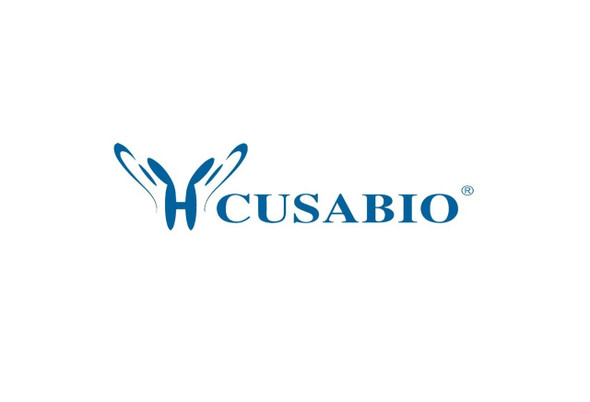Cusabio Polyclonal Antibodies
UBE2L3 Antibody, Biotin conjugated | CSB-PA025463LD01HU
- SKU:
- CSB-PA025463LD01HU
- Availability:
- 3 to 7 Working Days
Description
UBE2L3 Antibody, Biotin conjugated | CSB-PA025463LD01HU | Cusabio
UBE2L3 Antibody, Biotin conjugated is Available at Gentaur Genprice with the fastest delivery.
Online Order Payment is possible or send quotation to info@gentaur.com.
Product Type: Polyclonal Antibody
Target Names: UBE2L3
Aliases: Ubiquitin-conjugating enzyme E2 L3 (EC 2.3.2.23) (E2 ubiquitin-conjugating enzyme L3) (L-UBC) (UbcH7) (Ubiquitin carrier protein L3) (Ubiquitin-conjugating enzyme E2-F1) (Ubiquitin-protein ligase L3), UBE2L3, UBCE7 UBCH7
Background: Ubiquitin-conjugating enzyme E2 that specifically acts with HECT-type and RBR family E3 ubiquitin-protein ligases. Does not function with most RING-containing E3 ubiquitin-protein ligases because it lacks intrinsic E3-independent reactivity with lysine: in contrast, it has activity with the RBR family E3 enzymes, such as PARK2 and ARIH1, that function like function like RING-HECT hybrids. Accepts ubiquitin from the E1 complex and catalyzes its covalent attachment to other proteins. In vitro catalyzes 'Lys-11'-linked polyubiquitination. Involved in the selective degradation of short-lived and abnormal proteins. Down-regulated during the S-phase it is involved in progression through the cell cycle. Regulates nuclear hormone receptors transcriptional activity. May play a role in myelopoiesis.
Isotype: IgG
Conjugate: Biotin
Clonality: Polyclonal
Uniport ID: P68036
Host Species: Rabbit
Species Reactivity: Human
Immunogen: Recombinant Human Ubiquitin-conjugating enzyme E2 L3 protein (1-154AA)
Immunogen Species: Human
Applications: ELISA
Tested Applications: ELISA
Purification Method: >95%, Protein G purified
Dilution Ratio1:
Dilution Ratio2:
Dilution Ratio3:
Dilution Ratio4:
Dilution Ratio5:
Dilution Ratio6:
Buffer: Preservative: 0.03% Proclin 300
Constituents: 50% Glycerol, 0.01M PBS, pH 7.4
Form: Liquid
Storage: Upon receipt, store at -20°C or -80°C. Avoid repeated freeze.
Initial Research Areas: Epigenetics and Nuclear Signaling
Research Areas: Epigenetics & Nuclear Signaling;Cell biology






